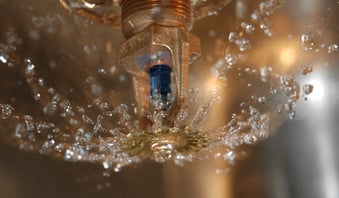 There are a lot of things a restaurant owner or manager must tend to, and one of the most important is the safety of the establishment and its customers. Since the restaurant kitchen is a common place for fires, most of the safety concerns about running a restaurant are centered around fire safety in the kitchen and you can be assured the fire inspector will start there when it is time for them to visit.
There are a lot of things a restaurant owner or manager must tend to, and one of the most important is the safety of the establishment and its customers. Since the restaurant kitchen is a common place for fires, most of the safety concerns about running a restaurant are centered around fire safety in the kitchen and you can be assured the fire inspector will start there when it is time for them to visit.
In fact, according to the National Fire Protection Association, cooking in the kitchen causes 59 percent of restaurant fires. Due to this valid concern, restaurants must undergo frequent, routine inspections by the local fire marshal to ensure everything is working properly, cleaned as it should be, and maintained on schedule according to local laws and adopted NFPA Standards to have licensed/certified service company perform semi-annual maintenance . Here are the most common fire code violations for restaurants.
Hood Systems
One of the most common restaurant code violations, and something the fire inspector will definitely be looking for, is issues with the restaurant’s hood system. Grease residue builds up quickly on exhaust hoods and ducts. If this grease catches on fire, your kitchen could be devastated. Since improperly cleaned hood systems account for 21 percent of all restaurant kitchen fires, it is imperative to clean hood filters regularly. It is also suggested that a professional kitchen exhaust cleaner perform regular cleanings for the best results. Be certain that updated certification tags have been installed by a licensed/certified inspection company with no deficiencies noted. Further, have the most recent inspection report reflecting that proper maintenance has been performed on your hood suppression system onsite and available.
Improper Storage of Flammable Materials
On the list of things to look for during a restaurant inspection is definitely the location and storage of your flammable materials. All hazardous cleaning chemicals must be stored a good distance away from open flames or heat sources so they do not combust and cause a fire.
Clear Escape Routes
The inspector knows that if there is a fire in a restaurant, the employees and customers need a safe way to escape harm. Because of this, they will check to ensure the aisles are uncluttered and there is nothing in the way of employees and customers exiting promptly if needed. In addition, the emergency exit routes must be adequately lit with properly working exit signs so they are easily seen. Exit signs must also feature up-to-date inspection stickers indicating the last date an inspection was performed.
Equipment Inspections
The National Fire Protection Association code indicates that any equipment that produces heat must be regularly maintained to prevent accidental combustion of flammable materials, so the fire inspector will be checking to ensure compliance. Everything from deep fryers and stoves to broilers and grills should be clean, certified if needed, and ready to pass inspection since frayed electrical cords or faulty equipment are responsible for many electrical fires each year.
Grease Traps
The safety inspector will definitely be checking the grease traps in restaurants for a fire hazard. Grease traps are filled with all sorts of flammable items. Overfilled grease traps are a definite fire hazard that will need to be checked on a regular basis.
Restaurants are notorious for being fire hazards – it just comes along with the territory. There are fire hazards lurking in every restaurant in the world right now, especially in the kitchen, and a fire can happen in an instant in a restaurant with one tiny spark. Maintaining equipment properly, taking care to check the kitchen for any obvious fire hazards, and having the proper inspections done when required are all imperative to passing your next inspection with the fire marshal. Being aware of these common fire hazards in your restaurant’s kitchen and taking the proper steps to neutralize them could save not only your restaurant, but valuable lives, too.
